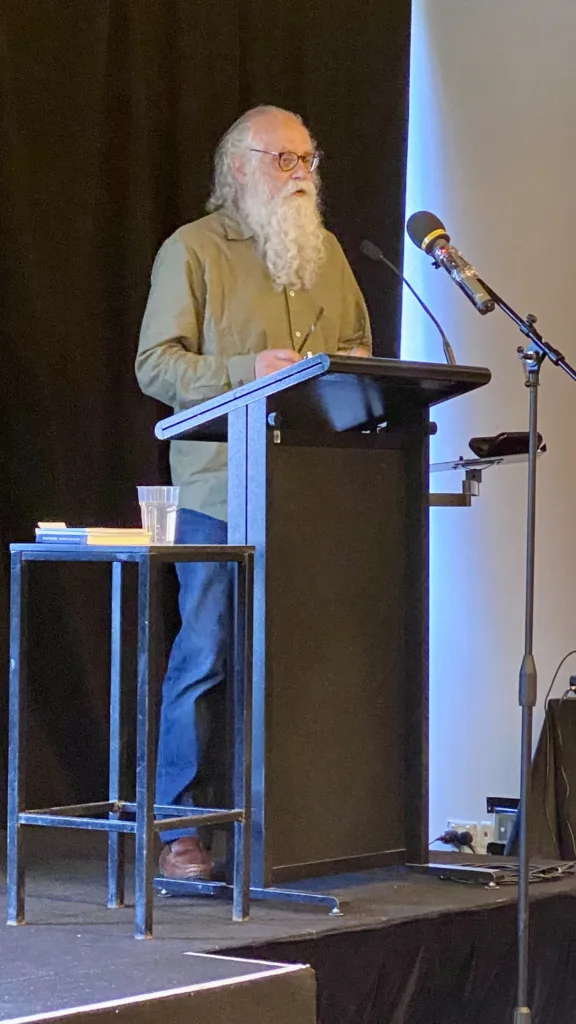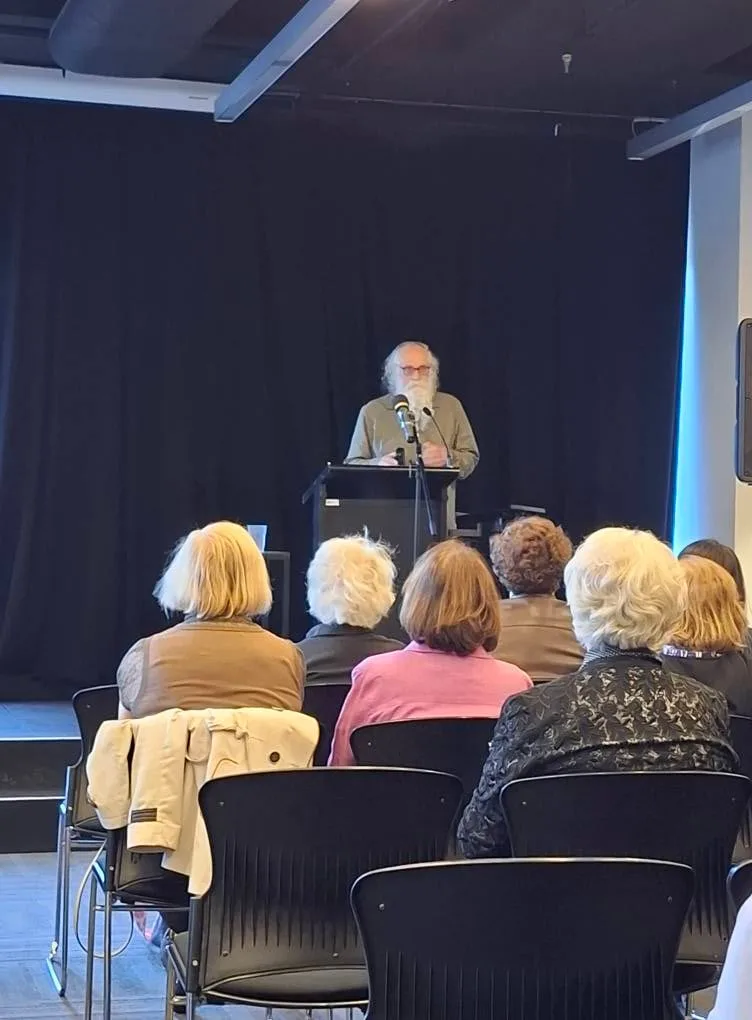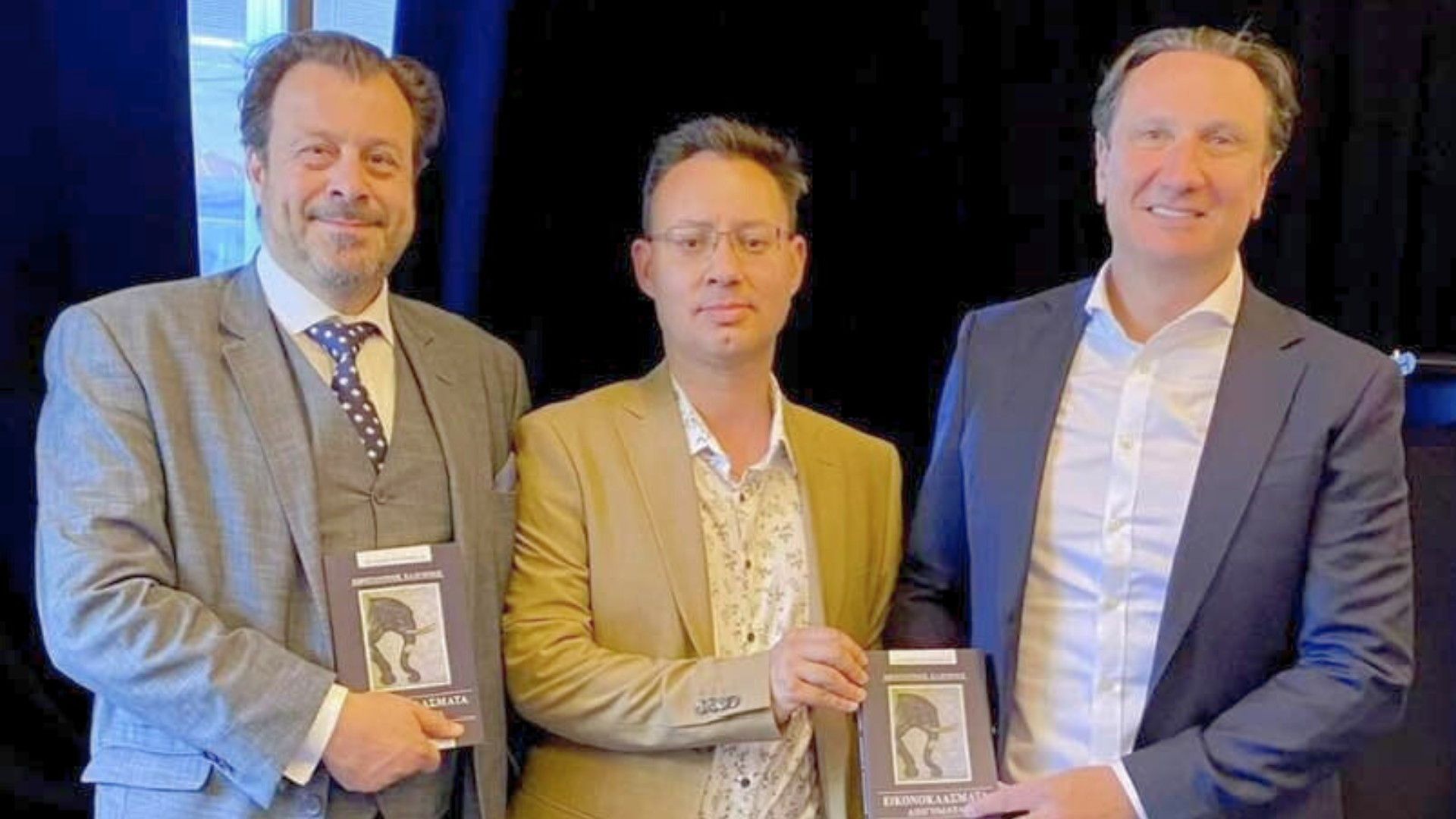Melbourne author and lawyer Dean Kalimniou’s (Konstantinos Kalymnios) latest book of Greek short stories «Εικονοκλάσματα» (Eikonoklasmata), which was published recently in Greece to critical acclaim, was launched on Sunday, November 3 at the Greek Centre.
The event was co-hosted by the Greek Community of Melbourne (GCM), the Greek Australian Cultural League of Melbourne, and the Hellenic Writers’ Association of Australia.
In his address, Consul General of Greece in Melbourne, Emmanuel Kakavelakis referred to Mr Kalimniou’s prolific output.
“I have been an avid reader of his work ever since I arrived in Australia,” the Consul General noted, observing that the title of his latest collection provides food for thought: “I am not sure whether he is an Iconoclast or an Iconodule. I can’t wait to find out.”

GCM President Bill Papastergiadis reflected upon the way “the book draws upon a multitude of places and historical periods on the periphery of the Hellenic World in order to provide poignant messages relating to our existence in the here and now.”
Mr Papastergiadis also referred to the author as “an icon of our community in his own right,” and highlighted the GCM’s support of Mr Kalimniou’s various literary and cultural endeavours over a number of years.
Adjunct Senior Lecturer in Philosophy at LaTrobe University, Dr George Vassilacopoulos enraptured those present with a detailed analysis of what he considers to be a most complex work. Commenting on the author’s riveting narrative and use of language from all periods of Greek history, he then drew upon Platonic political thought, in order to deconstruct the motifs and framing devices of the collection, highlighting the manner in which history, language and belief systems are seamlessly employed by the author in order to make sense of the present.

“Ultimately, this is a work that thinks about the reader, just as the reader thinks about the work,” Dr Vassilacopoulos stated. “And the author’s heroes and heroines all have one thing in common: they all take a stance of resistance against something, even though they know that their resistance is doomed to failure. More than a work of literature, this is a highly political work, in the Platonic sense.”
He also posited that the author’s identification with the Greek language was key to understanding what he deemed to be his “ultimate truth.”
The event concluded with readings from the collection by the author.
